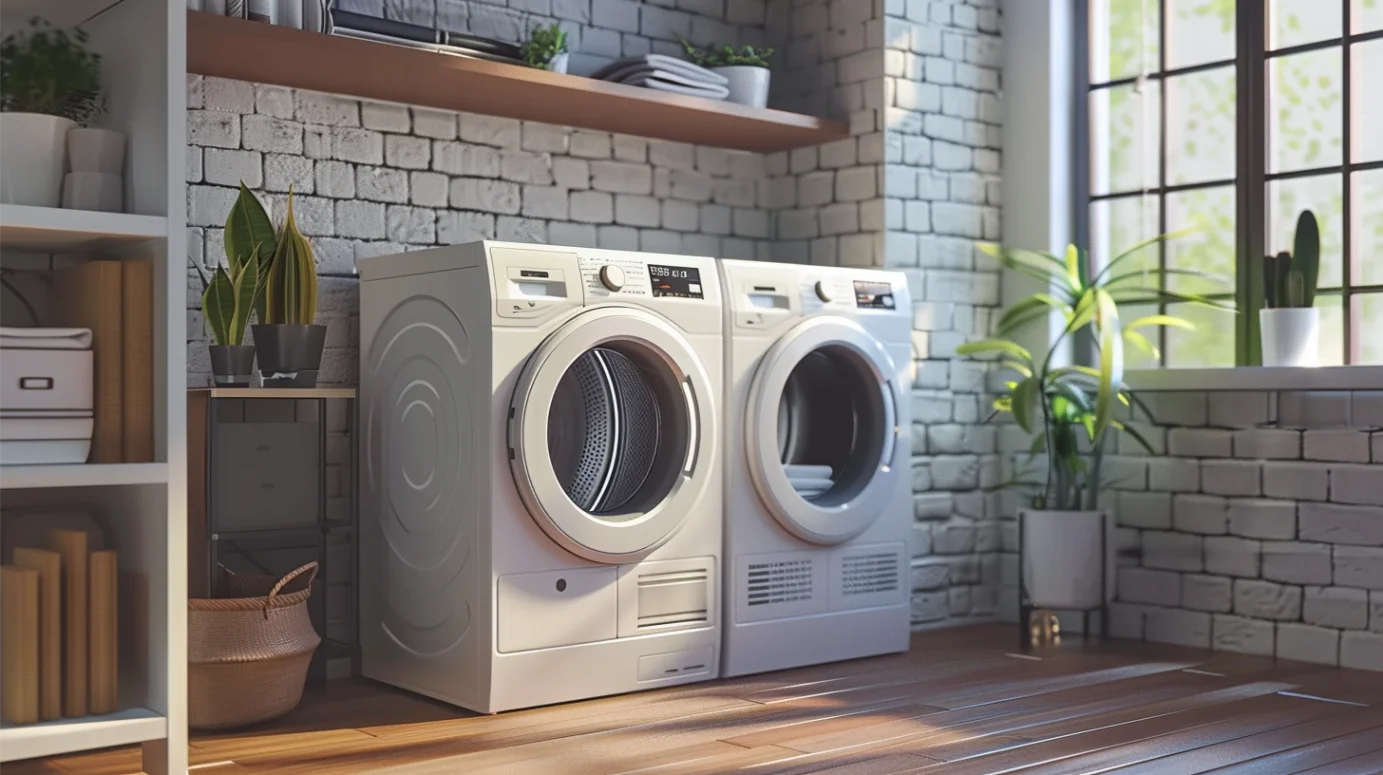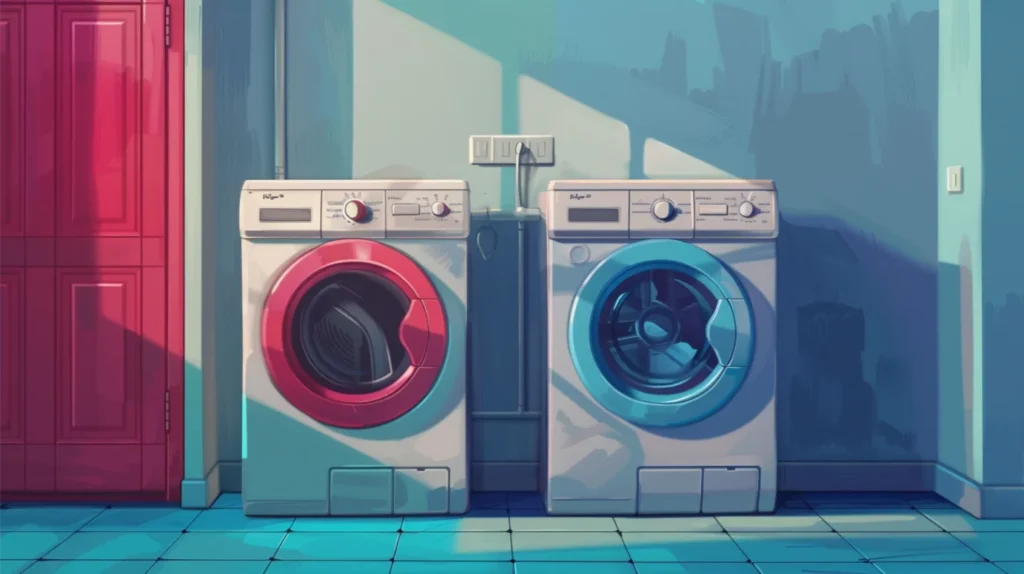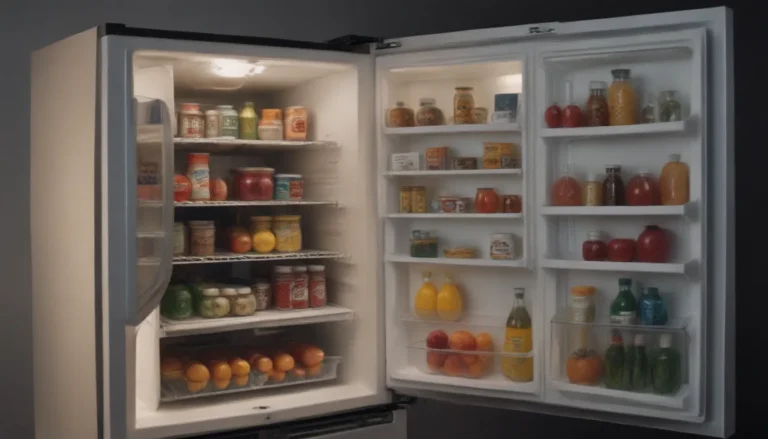Gas vs. Electric Clothes Dryers: Everything You Need to Know

Are you in the market for a new clothes dryer? Or perhaps you’re just curious about the differences between gas and electric models? Either way, you’ve come to the right place! In this comprehensive guide, we’ll dive deep into the world of clothes dryers, exploring the pros and cons of gas and electric options. By the end of this article, you’ll be equipped with all the knowledge you need to make an informed decision about which type of dryer is best for your home and lifestyle.
Understanding the Basics: How Clothes Dryers Work
Before we delve into the specifics of gas and electric dryers, let’s take a moment to understand how these appliances work in general. At their core, all clothes dryers operate on the same principle: they use heat and tumbling action to remove moisture from your clothes.
The process typically involves the following steps:
- Wet clothes are placed in a drum that rotates.
- Hot air is blown into the drum.
- As the clothes tumble, the hot air absorbs moisture from the fabrics.
- The moist air is then vented outside or, in the case of condenser dryers, cooled to remove moisture before being reheated and recirculated.
The main difference between gas and electric dryers lies in how they generate the heat needed for this process. Let’s explore each type in detail.

Electric Dryers: Plugging into Convenience
Electric dryers are the most common type found in homes today. They’re popular for their simplicity and ease of installation, especially in apartments and homes without existing gas lines.
How Electric Dryers Work
Electric dryers use heating elements, similar to those found in electric ovens, to generate heat. These elements are powered by electricity, typically requiring a 240-volt outlet. When you start the dryer, electricity flows through these elements, causing them to heat up. A blower or fan then circulates this hot air through the tumbling clothes, evaporating the moisture.
Pros of Electric Dryers
- Easy installation: If you already have a 240-volt outlet, setting up an electric dryer is as simple as plugging it in and connecting the vent.
- Lower upfront cost: Electric dryers are generally less expensive to purchase than their gas counterparts.
- Wider availability: You’ll find more models and options when shopping for electric dryers.
- No gas line required: This makes them suitable for homes without gas connections or areas where natural gas isn’t readily available.
- Safer for some environments: There’s no risk of gas leaks or combustion-related accidents.
Cons of Electric Dryers
- Higher operating costs: Electricity is often more expensive than natural gas, leading to higher long-term running costs.
- Slower drying times: Electric dryers typically take longer to dry clothes compared to gas models.
- Less energy-efficient: They generally use more energy to achieve the same results as gas dryers.
- Potential for higher carbon footprint: Depending on how your electricity is generated, electric dryers may indirectly produce more carbon emissions.
Gas Dryers: Harnessing the Power of Natural Gas
Gas dryers use natural gas or propane to generate heat, offering a powerful and often more cost-effective drying solution. While less common than electric models, they’re favored for their efficiency and performance.
How Gas Dryers Work
Gas dryers have a gas burner that ignites to produce heat. An electric motor powers the drum rotation and fan, but the heat comes from burning gas. This setup still requires electricity to run the motor and controls, typically using a standard 120-volt outlet.
Pros of Gas Dryers
- Lower operating costs: Natural gas is usually cheaper than electricity, resulting in lower monthly energy bills.
- Faster drying times: Gas dryers heat up quickly and generally dry clothes faster than electric models.
- More energy-efficient: They use less energy overall to dry the same amount of clothes.
- Better for the environment: If you have access to natural gas, these dryers often have a lower carbon footprint.
- Gentler on clothes: The moist heat from gas dryers can be less harsh on fabrics over time.
Cons of Gas Dryers
- Higher upfront cost: Gas dryers are typically more expensive to purchase than electric models.
- Professional installation required: You’ll need a licensed professional to install the gas line, which adds to the initial cost.
- Limited placement options: They must be placed where a gas line can reach, which may limit your laundry room layout.
- Potential safety concerns: While rare, gas leaks can pose safety risks if not properly maintained.
- Less variety: There are fewer gas dryer models available on the market.
Comparing Performance: Gas vs. Electric
Now that we’ve covered the basics of each type, let’s dive into a more detailed comparison of their performance in key areas.
Drying Speed
Gas dryers take the lead here. They heat up faster and maintain higher temperatures, resulting in quicker drying times. On average, a gas dryer can finish a load 10-15 minutes faster than an equivalent electric model.
Energy Efficiency
Gas dryers are generally more energy-efficient than electric ones. They use less energy to generate the same amount of heat, which not only saves on operating costs but also reduces overall energy consumption.
Cost Considerations
When it comes to cost, we need to look at both upfront and long-term expenses:
- Upfront costs: Electric dryers are cheaper to buy and install, especially if you already have the required 240-volt outlet.
- Operating costs: Gas dryers typically cost less to run, with potential savings of $50 to $100 per year, depending on local utility rates.
- Lifespan: Both types have similar lifespans, usually around 10-13 years with proper maintenance.
Environmental Impact
The environmental impact of your dryer choice depends largely on your local energy sources:
- If your electricity comes from renewable sources like solar or wind, an electric dryer might have a lower carbon footprint.
- In areas where electricity is generated primarily from coal or other fossil fuels, a gas dryer may be the more eco-friendly choice.
Clothing Care
Gas dryers often have a slight edge in clothing care. The moist heat they produce can be gentler on fabrics, potentially leading to less wear and tear over time. However, modern electric dryers have made significant improvements in this area, and the difference is often negligible with proper use.
Making Your Decision: Factors to Consider
Choosing between a gas and electric dryer isn’t always straightforward. Here are some key factors to consider when making your decision:
- Existing Setup: Do you already have a gas line or the right electrical outlet? Converting from one to the other can be costly.
- Local Utility Costs: Compare the rates for electricity and natural gas in your area to estimate long-term operating costs.
- Space and Ventilation: Both types need to be vented to the outside, but gas dryers have stricter installation requirements.
- Climate: In colder climates, gas dryers can be more efficient as they reach optimal temperatures faster.
- Usage Patterns: If you do lots of laundry, the efficiency of a gas dryer might save you more in the long run.
- Environmental Concerns: Consider the source of your electricity and your personal environmental priorities.
- Budget: Balance the upfront costs against potential long-term savings.
- Personal Preferences: Some people simply prefer one type over the other based on familiarity or perceived performance.
Installation and Maintenance Tips
Whichever type you choose, proper installation and maintenance are crucial for safety, efficiency, and longevity.
Installation
- Electric Dryers: Ensure you have a properly grounded 240-volt outlet. If not, hire an electrician to install one.
- Gas Dryers: Always use a licensed professional for installation to ensure safe gas line connection and proper venting.
Maintenance
For both types:
- Clean the lint filter after every load.
- Inspect and clean the vent duct annually.
- Keep the area around the dryer clear for proper airflow.
- Have a professional service the dryer every 1-2 years.
For gas dryers, also:
- Have the gas line and connections checked regularly for leaks.
- Be aware of the smell of gas, which could indicate a leak.
Innovative Features in Modern Dryers
Whether you opt for gas or electric, modern dryers come with a range of features that can enhance your laundry experience:
- Moisture sensors: Automatically stop the cycle when clothes are dry, saving energy and protecting fabrics.
- Steam functions: Great for reducing wrinkles and refreshing clothes.
- Wi-Fi connectivity: Control and monitor your dryer from your smartphone.
- Multiple heat settings: Customize the drying process for different types of fabrics.
- Large capacity drums: Perfect for big families or bulky items like comforters.
The Future of Clothes Drying
As technology advances and environmental concerns grow, the future of clothes drying looks exciting:
- Heat pump dryers: These ultra-efficient electric dryers are gaining popularity, especially in Europe.
- Solar-powered options: Some manufacturers are exploring ways to harness solar energy for clothes drying.
- Combination washer-dryers: These space-saving appliances are becoming more efficient and effective.
- Smart home integration: Expect to see more dryers that can be controlled by voice assistants and smart home systems.
Conclusion: Making the Right Choice for You
In the end, the choice between a gas and electric dryer comes down to your specific circumstances, preferences, and priorities. Both types have their strengths and can serve you well for years to come.
If you have access to natural gas and don’t mind the higher upfront cost, a gas dryer could save you money and time in the long run. On the other hand, if you’re looking for simplicity, lower initial costs, or don’t have access to gas, an electric dryer is an excellent choice.
Remember, the most energy-efficient dryer is the one that best fits your needs and gets used correctly. Whichever type you choose, using it wisely – running full loads, cleaning the lint filter, and performing regular maintenance – will ensure you get the most out of your investment.
Now that you’re armed with all this information, you can confidently choose the perfect dryer for your home. Happy laundry days ahead!





